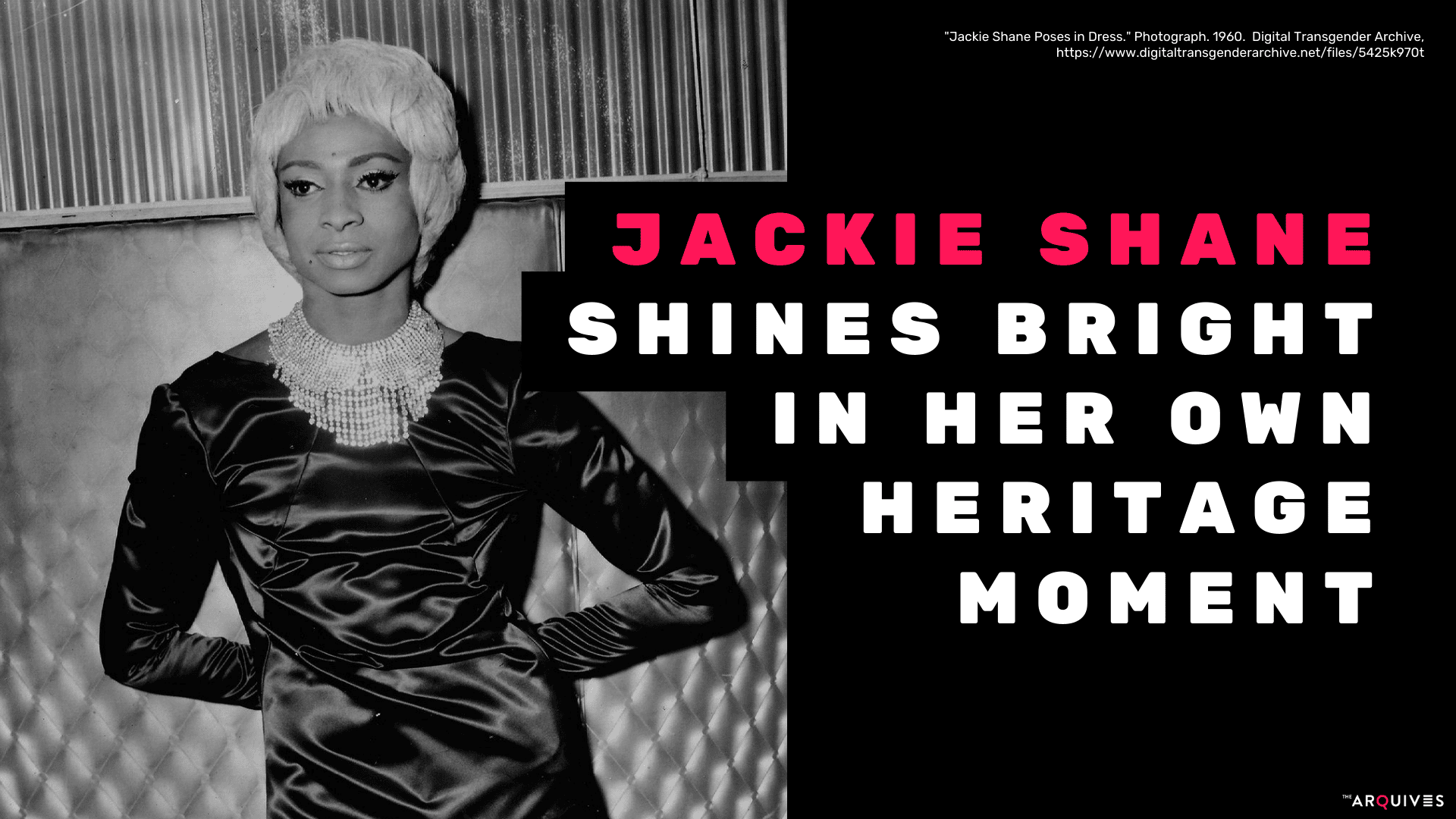Directors, Ayo Tsalithaba and Pat Mills, joined The ArQuives intern, Dede, to discuss the challenges and triumphs of bring Jackie Shane’s story to the masses.
In 2022, I got to sit down and talk about the short “Heritage Minutes: Jackie Shane” with Ayo Tsalithaba and their co-director, Pat Mills, and one of the executive producers, Vanessa Magic. The entirety of the process, from conception to final reveal, seemed to have an air of serendipity and joy sprinkled throughout. As we celebrate the life of Jackie Shane, we spoke about (re)presentation, collaborating, and how to handle the news.
This interview was conducted the day after the death of five people in the LGBTQ2+ club, Club Q, in Colorado Springs. The LGBTQ2+ community commonly stands in the flux of tragedy and transcendence. It’s evident in the shooting itself: a nightclub, places of joy, become signifiers of tragic losses.
Jackie Shane was a transgender Soul and R&B singer, pivotal to Toronto’s music scene in the 1960s. Despite being born in Nashville, Tennessee, Shane called Canada her home after meeting popular jazz act, Frank Motley and his Motley Crew, in Montreal in 1961. Shane relocated to Toronto and toured with Motley for another decade.
In the beginning of the 1970s, Shane disappeared from the public eye. She was completely untraceable until the late 2010s and unfortunately passed shortly after in February 2019. In 2015, Jackie Shane Live was short-listed for the Polaris Music Prize. A double-LP/CD compilation of Shane’s music, Any Other Way, was also nominated at the 2017 Grammy Music Awards. Shortly before her passing, Shane spoke on CBC Radio Q and confirmed that she returned to Nashville to care for her mother. Most recently, Shane’s story was depicted in the 2024 documentary Any Other Way.
Ayo Tsalithaba, a visual artist and filmmaker based in Toronto, collaborated with director Pat Mills and executive producers Vanessa Magic and Caitlin Brown to create a Heritage Moment for Jackie Shane. The film features Toronto activist Ravyn Wngz as Shane. Rigorous research went into the short, with the Canadian government’s own team of fact checkers verifying every word spoken by late and great singer-songwriter Beverly Glenn-Copeland, the narrator.
The short isn’t like other Heritage moments, it’s one of a kind. The pacing, lighting, and music all play to bring Wngz’s performance to ascension. Oftentimes directors representing marginalized communities, exemplify our fearlessness without questioning the reasons we must be fearless and strong. Watching the Heritage Canada short, it’s beautiful to see how the editing and filmmaking make this tension in Jackie’s life present.
Ayo said, in response to these tensions “Jackie Shane was powerful because she had to be”. They expressed excitement about the process and talked about balancing this excitement and openness with rigorous accuracy. Coming out of the 2010s, people understand representing marginalized communities to be far more complicated than previously thought.
Another tenuous conversation amongst Ayo, Pat and the rest of the production team was casting. While they had the go ahead from the Canadian government to produce this important project, they knew the first challenge was who to cast as Jackie Shane. It was not only a problem of theatrical prowess, but a potentially contentious decision. Cisgender men and women answered the call, and Mills expressed concern about how to direct a potential novice in front of the screen.
After making the deliberate choice to cast a Black and transgender actress, the team knew that they would need to extend themselves to make the best piece. In the final round of auditions, the actresses all had theater experiences, but many had never been in front of a camera before. It’s fascinating hearing the stories of Mills and Ayo stretching and shaking the confines of the audition to assess an actress’ skill level. When it came to shooting, the government held very high standards for the accuracy of everything: chairs, lights, clothes… everything. However, Mills and Tsalithaba utilized the auditions to play and see how an actress can commit to this character.
More often than not, transgender people in film and television are being directed and played by cisgender people. These films create stereotypes, positive and negative, about the lives and minds of this marginalized group. Jackie Shane in this short film is played by actress, artist and Ravyn Wngz, a transgender woman herself. Behind the camera too, Tsalithaba is non-binary and their co-direction in creating and (re)presenting the image of Jackie Shane, makes for better art. Our society has matured but many material factors like poverty, bigotry, and grief, are still as present as ever for transgender people. While strife is as pertinent as ever, so is hope.
Author bio: Dede Akolo (she/they) is a writer born in Vancouver, BC and now based in Toronto, ON. In 2021, they were nominated for “Best Personal Essay” at the Digital Publishing Awards and have been featured in Chatelaine, Exclaim, and Xtra. In Fall 2022, Dede was Marketing and Promotional Intern at the ArQuives as a part of the Professional Writing and Communications Postgraduate Certificate program at Humber College.

